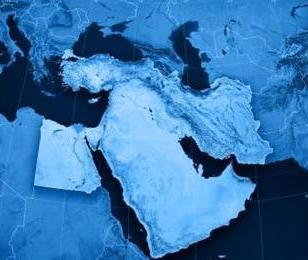Zuhair Abulqasim, senior underwriter for political violence at IGI, based in the DIFC, will be joining the PV roundtable taking place during DWIC 2025.
Political violence (PV) direct and facultative re/insurance in the Middle East is facing growing pressure from new entrants and falling rates, despite ongoing instability in key territories, according to Zuhair Abulqasim, senior underwriter for political violence at IGI, based in the Dubai International Financial Centre (DIFC).

Abulqasim says that an influx of capacity from outside the region, especially from London-based managing general agents (MGAs), has accelerated PV market softening.
“The market is softening definitely faster than expected,” he says, speaking to GR on the eve of the DWIC 2025 event, which begins on Monday.
“Many of these MGAs and capacity providers in London have large targets and budgets to hit. They’re entering a territory they weren’t heavily involved in before, and they’re jumping in fast with big discounts to gain market share.”
Abulqasim names 2023 as the pricing peak for PV cover, with rates dropping through 2024 and into 2025.
Local underwriters in the DIFC have grown their business while getting more familiar with PV risks, but he warns that a lack of deep expertise remains a concern—particularly when new players move into the high severity line of business.
“We struggle with their understanding of what the cover is,” he says, highlighting past examples in Saudi Arabia where local insurers classified attacks by Yemen’s Houthis as terrorism, while reinsurers viewed the events as acts of war.
That divergence in understanding and interpretation had real implications for claims, he stresses.
To avoid such discrepancies, Abulqasim advocates for comprehensive PV policies that cover the full range of perils, from sabotage and terrorism to civil war and rebellion.
While 2024 was mostly profitable across the market—aside from exposures in Lebanon—Abulqasim believes that 2025 could be more volatile.
His chief regional concern is the risk of escalating conflict in Syria and potential spillover into Turkey and Iraq.
“That’s where I write a lot of business, especially in Turkey,” he says.
“The Kurdistan region is a major concern—it spans across both Turkey and Iraq, and could see expansion of conflict.”
While Syria has long been heavily sanctioned and lacks insurable business, events there could still ripple into neighbouring jurisdictions with more significant exposures.
With many PV risks placed late in the renewal process and often based on aggressive terms, competition between underwriters remains fierce—particularly as brokers push for better deals on behalf of their clients.
“It’s a quantity type of business,” says Abulqasim. “Being the first to offer competitive terms can make all the difference.”
Standardised wordings remain the basis for most policies. But as geopolitical risks evolve rapidly in the region, Abulqasim acknowledges a disconnect between the geopolitical realities and the pace at which rates are falling.
“The biggest contributors to falling rates are sitting in London, while we’re seeing the sharpest decreases here in the Middle East,” he says.
“Given the uncertainty in the region, the rates shouldn’t be going down this fast.”
As 2025 unfolds, he warns that an over-eagerness to deploy capacity at low prices could leave markets dangerously exposed.
Abulqasim will be joining the PV roundtable taking place during DWIC 2025.










No comments yet